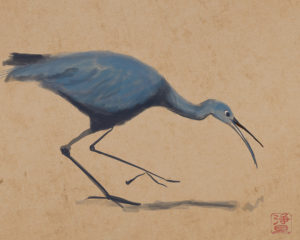 Listen to Teresa’s guided meditation on delight.
Listen to Teresa’s guided meditation on delight.
In January, the podcast The American Life rebroadcast an episode titled A Show of Delights. When they first broadcast the episode a year earlier, during a time of wildfires, racial injustice, the beginning of the pandemic, and ever-increasing division, they called it revolutionary programming. To claim delight in a time of such disturbance, they admitted, can feel frivolous, even disloyal. But the ability to find joy and delight in the midst of darkness is what can give us the balance and strength to go on.
The first segment of the show interviewed bestselling poet Ross Gay, author of The Book of Delights. Every day for a year, he wrote an “essayette” on delight, cataloguing everything that had pleased him on that particular day.
He undertook, if you will, a practice of delight. And he found that he had to train himself to notice delight, to strengthen his muscle of delight. Delight doesn’t just arrive, he realized. You have to go looking for. The more he practiced, the more delight he found.
And Gay wasn’t just singing kumbaya. It’s striking how many losses are in the book: sickness, injury, the death of good friends. As Gay told the host of This American Life: “When I think of joy, grown up joy is made up of our sorrow, just like it’s made up of what is pleasing to us. Often, it felt like I wasn’t going to be able to talk about delight without talking about these other things. Delight often implies its absence.”
Artists know this is true. You need the darkness to see the light, the light to understand the darkness. And scientists recognize it, too: If you gaze at the sun, you will go blind. And if you never look away from the darkness? You will go blind.
Delight is a counter balance to difficulty: yin and yang, darkness and light. The Aztecs believed that the god Quetzalcoatl gave chocolate to humankind to make up for the pain of having to live on earth. The Buddha talked about the 10,000 joys and the 10,000 sorrows.
During the Vietnam War, Thich Nhat Hahn and other young monastics worked tirelessly to relieve suffering in the countryside, and to broker an end to the war. Anyone they found, they would try to help: soldier or civilian, South Vietnamese, North Vietnamese, or American. Because they wouldn’t take sides, they were shot at from all directions. Their work was tireless and often gruesome. But they went back, day after day after day. Thich Nhat Hahn spoke of what gave them the strength to continue in the introduction to Learning True Love: Practicing Buddhism in a Time of War, by Sister Chân Không:
“One day, Chân Không was preparing a basket of fresh, fragrant herbs to serve with rice noodles, and she asked me, ‘Thay, can you identify these herbs?’ Looking at her displaying the herbs with care and beauty on a large place, I became enlightened. She had the ability to keep her attention on the herbs, and I realized I had to stop dwelling on the war and learn to concentrate on the herbs also. We spent ten minutes discussing the herbs that could be found in the south of Vietnam and the ones in the central regions, and that encounter took my mind off the war, allowing me to recover the balance I needed so badly.”
Read “A Brief for the Defense,” a poem by Jack Gilbert
Listen to “The Show of Delights” on This American Life.
Listen to Teresa’s guided meditation on delight.
